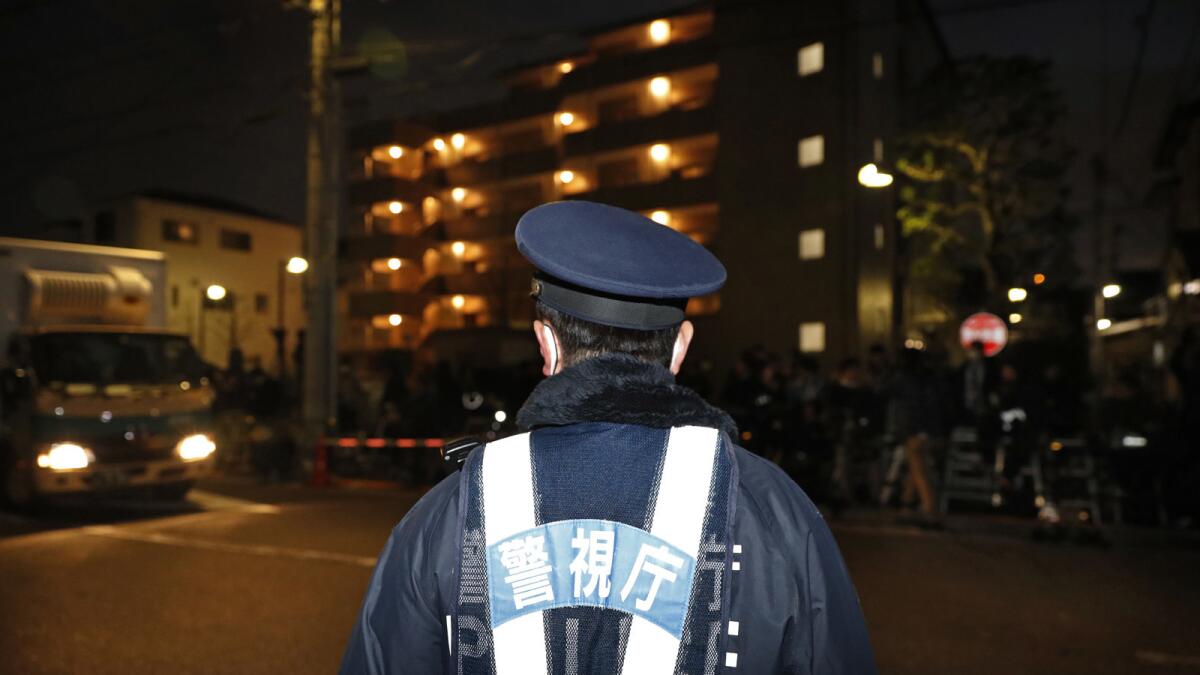Japan prosecutors file new allegation against Nissan’s Ghosn

- Share via
Reporting from TOKYO — Japanese prosecutors added a new allegation of breach of trust against Nissan’s former chairman Carlos Ghosn on Friday, dashing his hopes for posting bail quickly.
Ghosn and another former Nissan executive, Greg Kelly, were arrested Nov. 19 and charged with under-reporting Ghosn’s income by about $44 million in 2011-2015. They also face the prospect of more charges of under-reporting Ghosn’s income for other years by nearly $80 million in total.
The breach-of-trust allegations were filed a day after a court rejected prosecutors’ request for a longer detention of both men. The new allegation only applies to Ghosn, and Kelly could still be bailed out. A request for bail by Kelly’s lawyer is pending court approval, according to the Tokyo District Court, but his release will have to wait until next week because the request was still in process after office hours Friday.
Prosecutors in a statement Friday alleged that Ghosn in 2008 transferred a private investment loss worth more than $16 million to Nissan by manipulating an unspecified “swap” contract. Ghosn also profited by having the company transfer a total of $14.7 million to another company to benefit himself and that company’s owner, who helped in the contract manipulation, prosecutors said.
Shin Kukimoto, deputy chief prosecutor at the Tokyo District Prosecutors Office, refuse to say if the two transactions were related or how Ghosn illegally profited. He also declined to identify the collaborator or whether the transactions were made overseas.
Ghosn and Kelly are only charged with under-reporting Ghosn’s pay over five years, in violation of the Financial Instruments and Exchange Act. They have not been formally charged with an additional allegation of underr-eporting an additional $36 million for 2016-2018, for which their first 10-day detention was to expire Thursday.
Prosecutors have been criticized for separating the allegations as a tactic to detain Ghosn and Kelly longer. They say Ghosn and Kelly are flight risks.
The maximum penalty for violating the financial act is up to 10 years in prison, an $89,000 fine, or both. Breach of trust also carries a similar maximum penalty. The conviction rate in Japan is more than 99% for any crime.
Ghosn was sent by Renault in 1999 to turn around Nissan, then on the verge of bankruptcy, and he led its rise to become the world’s second-largest automaker. The arrest of the industry icon has triggered international attention and the scandal has raised concerns over the financial health of the Japanese automaker and the future of its alliance with Renault SA of France.
Nissan has said its own investigation found serious misconduct including under-reporting of Ghosn’s income and misuse of company assets. His downfall is seen by some as a maneuver by others at Nissan to gain power in the alliance.
Kelly’s wife, Donna Kelly, said in a video message carried by TV Asahi and other networks that her husband was “wrongly accused as part of a power grab” at Nissan. “Greg and Mr. Ghosn fully believe that they did not break the law,” she said.
Nissan dismissed Ghosn as chairman and Kelly as a representative director. It has put off a decision on Ghosn’s replacement.
More to Read
Inside the business of entertainment
The Wide Shot brings you news, analysis and insights on everything from streaming wars to production — and what it all means for the future.
You may occasionally receive promotional content from the Los Angeles Times.










